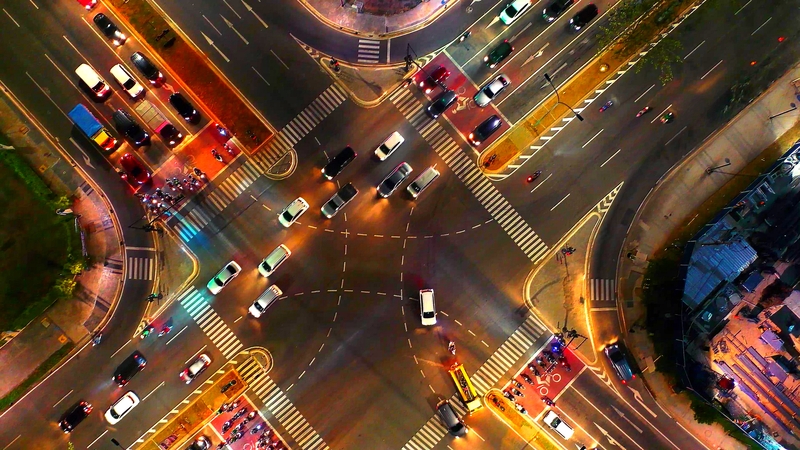
Photo: Kyra Appleby, CDP
Cities – the missing piece of the climate puzzle
18 May 2022
By Kyra Appleby, CDP Global Director for Cities, States and Regions
How do you like to start a puzzle, especially one of those really complicated, intricate ones? Perhaps you start with the edges, or maybe choose some large, identifiable object in the middle. However you do it, you’re likely looking for the key pieces that will ultimately lead you to solving the puzzle. When it comes to tackling climate change, cities are the central piece of the puzzle that is undoubtedly the single most important issue of our lifetime.
At a pivotal moment for global climate action, cities represent a huge opportunity for emissions reductions. They are the bright spot in the climate action movement, with over 1,100 cities committed to setting science-based targets and cities from Cape Town to Copenhagen, and Toronto to Taipei, taking action today to prevent disaster tomorrow.
It’s true that cities are responsible for an ever-increasing share of global greenhouse gas emissions – as much as 72 percent in 2020, despite covering only a fraction (three percent) of the earth’s surface. Consider that more than half the world’s population (55 percent, or 4.2 billion people) lives in a city, though – a figure the UN expects to jump to more than two in three people by 2050 – and that’s not surprising.
Yet, precisely because they are the backdrop to so many people’s lives – the places where they live, work, and build communities – and as hubs of innovation, creativity, and economic activity, into which investment is poured and capital centred, cities really are the critical piece of the puzzle to tackling climate change. Sitting on its front line, 93 percent of cities tell us they face significant climate hazards that put their people and infrastructure at risk. It simply is not possible, realistically, to keep the world on the path to limiting temperature rise to 1.5°C without bold action and transparency on the part of cities.
Growing urgency
Each day brings increasingly shocking evidence of what the future looks like in a warmer world. Just last month, in the spring month of April, temperatures hit 50°C in parts of India and Pakistan, pushing the limits of human endurance and leaving people gasping for air in the shade, suffering 18-hour power cuts and already seeing a 50 percent drop in crop yields. Each day the dual climate role of cities becomes ever clearer: to rapidly cut greenhouse gas emissions and to protect the people who live within them.
Improved social equity, public health and biodiversity are all direct results of climate action too. Our latest research with the World Health Organization demonstrates this – from Glasgow’s promotion of walking and cycling, which could contribute to 200 fewer annual deaths and savings of close to £600 million, to the planting of 30,000 trees in Indianapolis by 2025, which aims to help improve air quality and reduce incidences of cardiovascular disease.
It’s no surprise, then, that the IPCC’s latest report makes clear that city policymakers have a golden opportunity to demonstrate bold climate leadership, with “systemic” steps to reduce or change their energy and material consumption, enhance electrification and intensify carbon storage. Importantly, it also points out that cities can achieve net-zero goals “only if emissions are reduced within and outside of their administrative boundaries through supply chains”, which will have a domino effect across the city and its economic sectors.
To support these vital transitions, cities have frameworks to help them – like science-based targets or joining the UN-backed climate campaigns Race to Zero and Race to Resilience – but first and foremost in any action plan must be reporting climate data, through initiatives like CDP-ICLEI Track, an environmental reporting platform for cities.
At CDP, we’ve supported cities to disclose their climate targets and plans for over a decade. The city data we’ve collected consistently shows that what gets measured, gets managed. For example, cities with climate action plans are taking five times as many actions to reduce emissions as cities that don’t, while cities that have conducted a climate risk and vulnerability assessment are taking almost six times the amount of adaptation actions as those that haven’t. The knock-on positive effects of climate action also leap out from our data, with cities who identify the co-benefits of their climate action reporting 2.5 times more climate actions than cities that did not cite these benefits.
Asking the right questions
Our new questionnaire for 2022, which cities are now being invited to complete, aims to provide our best quality climate data yet, to drive the tangible actions that are so sorely needed to mitigate and adapt to climate change. Cities now receive a tailored, shorter questionnaire, based on their characteristics, such as population or greenhouse gas emissions per capita. And by being asked whether a city has undertaken a risk and vulnerability assessment and how climate change impacts a city’s health outcomes, or where a city’s water supply comes from and what its strategy is for addressing emissions from consumption of the most relevant goods and services, a clearer picture can be built of what needs to be done in any given city around the world to deal with the devastating impacts of climate change.
The questionnaire will deliver data that meets the needs of capital markets, enabling cities to attract investment and manage their own risks, while CDP is also expanding its Municipal Disclosure Campaign, in which municipal investment firms will request over 500 North American cities, states, provinces, and public authorities to report their climate information in 2022.
So, as we write a new chapter in CDP’s work with cities, it has never been clearer what a critical piece of the puzzle cities are to tackling climate change. This starts with reporting climate data and asking the right questions.










